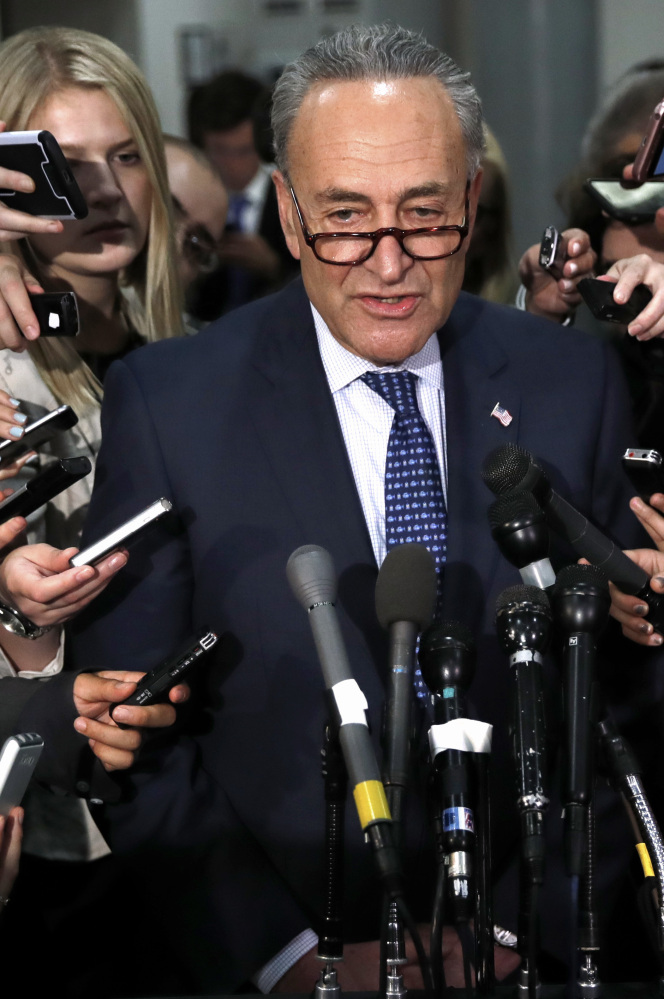WASHINGTON — Senators conceded Thursday that a scathing analysis of the House Republican health care bill had complicated their effort to dismantle President Obama’s health care law.
“It makes everything harder and more difficult,” Sen. Dean Heller, R-Nev., said of a Congressional Budget Office analysis projecting that the House bill would cause 23 million Americans to lose coverage by 2026 and create prohibitively expensive costs for many others.
“There’s blinking yellow lights throughout the whole thing,” Sen. Patrick Toomey, R-Pa., said of the report by lawmakers’ nonpartisan fiscal experts.
Congress now begins a week-long recess, with Republican senators still hunting for a health-care overhaul plan that can win the support of no less than 50 of their 52 members. All Democrats seem likely to oppose the bill, and Vice President Mike Pence could break a 50-50 tie.
While the analysis of the House-passed plan simply gives senators a numerical starting point for their own work, it also made the Republican health care drive a fatter target for Democratic attacks. And it highlighted how some provisions in the House bill would produce damaging consequences for many people.
“The bottom line is very simple. Unless you’re a healthy millionaire, Trumpcare is a nightmare,” said Senate Minority Leader Chuck Schumer, D-N.Y. “And I think that’s why our Republican colleagues are having such trouble putting together their own bill.”
The House bill would relax many of the Obama statute’s consumer protections, kill its mandate that people buy coverage, trim federal subsidies for insurance purchasers and cut the Medicaid program for lower-income and disabled people.
Senate Republicans have been holding private meetings to narrow differences and produce their own health care package. They’ve said it will differ markedly from the House measure, including easing some Medicaid reductions and focusing tax credits for buying coverage more at poorer people.
The No. 2 Senate Republican leader, John Cornyn of Texas, expressed optimism that senators were narrowing differences and said staff could “start work” over the recess on writing some language of a Senate bill, but he conceded, “There’s nothing final.”
Senate Finance Committee Chairman Orrin Hatch, R-Utah, said, “We’re still a ways away from having solutions here.”
That’s prompted increased talk of possibly breaking out a less ambitious bill aimed at keeping insurance markets stable over the next two years, Republicans say.
That could involve providing money to insurance companies so they can contain customers’ costs, and perhaps retaining Obama’s individual mandate, which imposes tax penalties on people who go uninsured.
Send questions/comments to the editors.



Comments are no longer available on this story